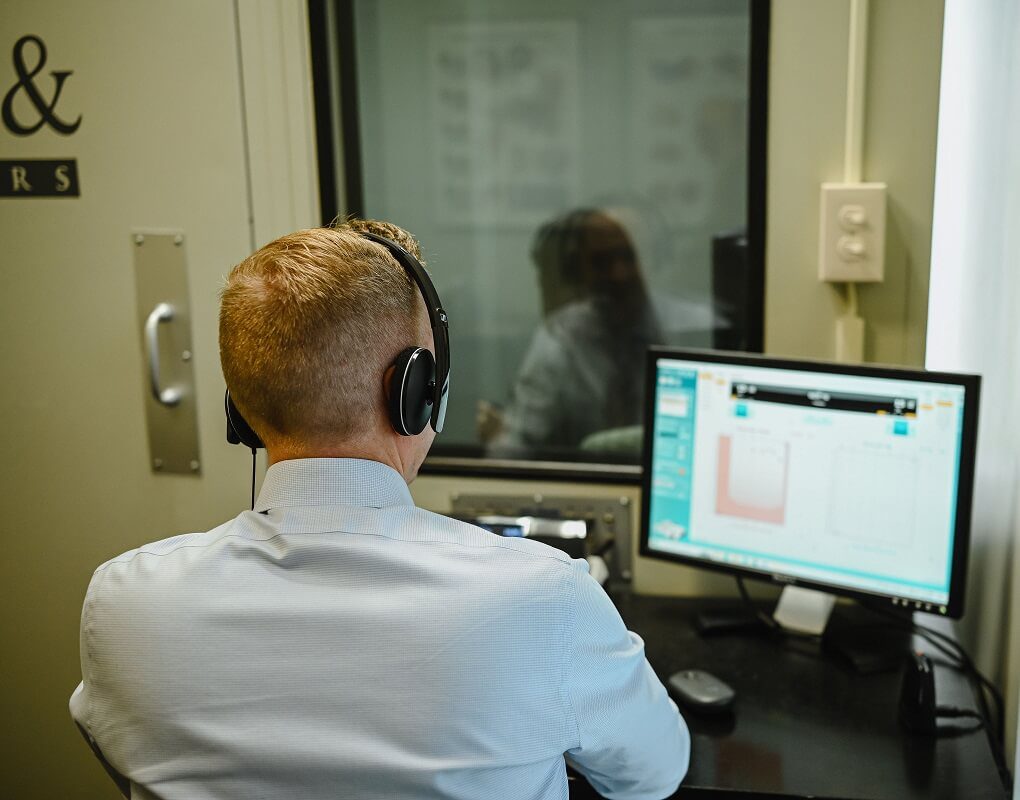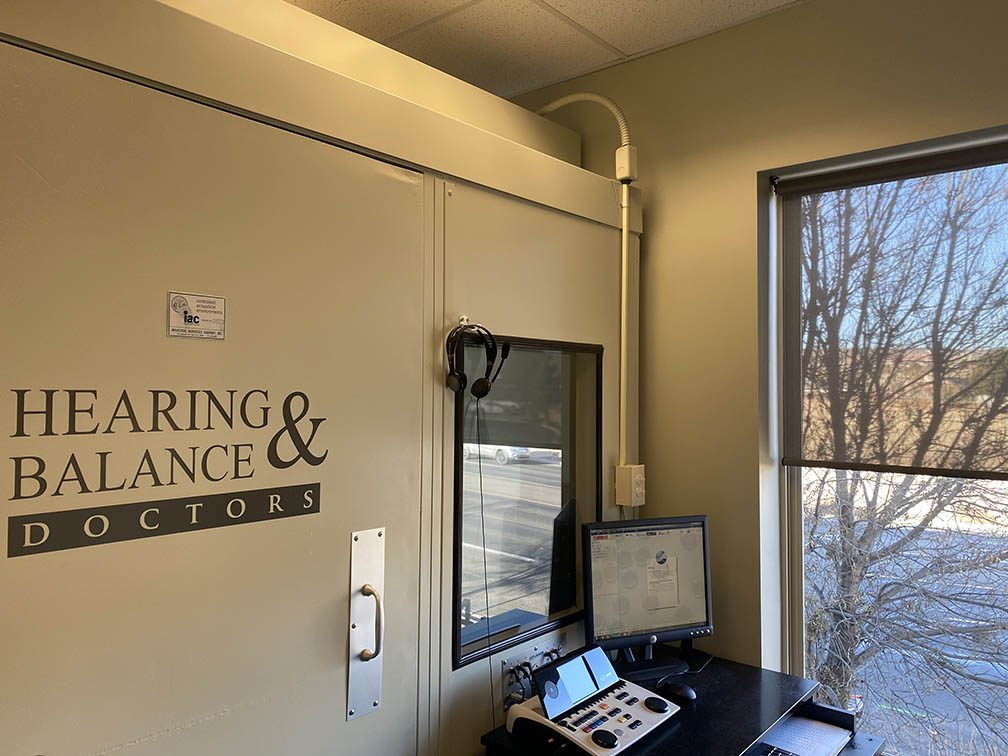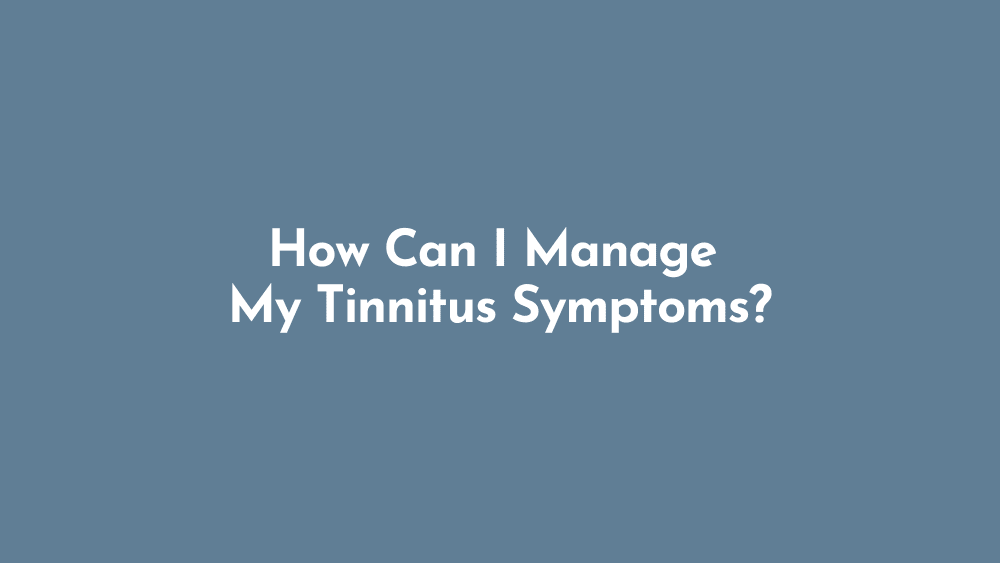Hearing & Balance Doctors
Tinnitus
Reliable Tinnitus Doctors in Nevada and Utah
Is there a constant ringing in your ears that is making it hard to concentrate, relax, or fall asleep? You’re not alone. Nearly 50 million Americans experience some form of tinnitus symptoms every year, placing it among the most common health complaints in the nation.
Nearly everyone has experienced temporary tinnitus after being in a noisy stadium, attending a loud concert or a nightclub, after discharging a firearm without hearing protection, or after an explosion. However, the ringing doesn’t go away for about 12.5 million Americans who experience ongoing tinnitus 24/7, reducing their quality of life and interrupting their lifestyle.
Though tinnitus does not cause hearing loss, it can be a symptom related to the kind of damage to your ears that can lead to hearing loss. Our trusted tinnitus doctors in Nevada and Utah understand your struggle and we’re ready to provide the help you need.
To decide whether the tinnitus management program at Hearing and Balance Doctors is right for you, ask yourself the following questions:
- Does my tinnitus frustrate me in a quiet room?
- Does my tinnitus keep me awake at night?
- Is it hard to focus on tasks because my tinnitus overwhelms me?
If you answered yes to these questions and your tinnitus is getting worse, then we can help you find some tinnitus relief.

I was treated with respect. They asked for any questions I may have. They listened carefully and addressed my needs. I left feeling well taken care of.
I was so happy to find this bunch of fine people. They are a joy to deal with and they take great care of my hearing needs.
Couldn’t be more grateful for this crew. Absolutely at the top of their game professionally and won’t find better people personally!
What is Tinnitus?
Tinnitus is the perception of sounds generated somewhere along the auditory pathway or inside the auditory processing center of your brain that are not really there. Similar to the “phantom limb” experienced by some amputees, tinnitus is a symptom of a neurological disorder.
The tinnitus experienced by each person varies. One person might experience a continuous tone while another hears a pulsating sound. For some, the sound is described as ringing in their ears, but others experience whirring, clicking, buzzing, or whooshing sounds.
Only the person with tinnitus can hear the sounds when experiencing subjective tinnitus, but if the sounds can be heard by others, the condition is known as objective tinnitus. Objective tinnitus tends to stem from known causes that can be treated with surgical intervention or other medical therapies.
Establishing specific tinnitus causes has eluded audiologists and doctors, but there are conditions that accompany or lead to tinnitus, like:
- Hearing loss
- Exposure to loud noise (Noise Induced Hearing Loss, NIHL)
- Head and neck injuries
- Ototoxic drugs
- Meniere’s disease
- Acoustic neuroma
- Hyper/hypothyroidism
- Abnormal growth of bone in the ear
- Tumor on the cranial nerve
- Stress
- Depression
- High blood pressure
- Impacted earwax
Without a definitive cause, finding relief for your tinnitus symptoms is a complex issue, but there are technologies and therapeutic techniques that can help.
5 Frequently Ask Questions About Tinnitus
1. How is tinnitus diagnosed?
A tinnitus diagnosis involves a case history and medical history, a questionnaire to help determine the loudness and pitch of your tinnitus, and a Tinnitus Handicap Inventory to evaluate the impact of the condition on your lifestyle and quality of life. To rule out or confirm hearing loss as a contributing cause, your audiologist will conduct a comprehensive hearing assessment. Additional tests by an ENT specialist are sometimes necessary to identify vascular or vestibular conditions that can produce tinnitus symptoms.
2. What happens if you don't treat tinnitus?
The short term or temporary tinnitus you experience after being exposed to loud noise or certain ototoxic drugs usually goes away within a few hours after the event, but ongoing tinnitus tends to worsen when not treated.
3. Can tinnitus be cured permanently?
Since most tinnitus cases have no defined cause, there is no permanent cure. In cases where symptoms are related to specific medical conditions, treating the condition can reduce or eliminate tinnitus symptoms.
4. Can you relieve tinnitus?
Audiologists, doctors, and researchers have found some proven therapeutic techniques and technologies able to provide relief for tinnitus, including hearing aids, sound masking, and tinnitus retraining therapy (TRT).
5. Can I use hearing aids for tinnitus management?
Tinnitus specialists use hearing aids only when your tinnitus is accompanied by hearing loss. However, by treating the hearing loss, the intensity of the condition often decreases, making it more manageable. In addition, many of today’s digital hearing aids have sound masking capabilities to further assist with tinnitus management.

How is Tinnitus Treated at Hearing and Balance Doctors?
Finding the right solution to the ringing in your ears can be quite a challenge, because your symptoms can be mild some days, destroy your capacity to concentrate other days, and keep you up all night as well. After conducting our tinnitus assessment, we’ll customize a tinnitus management program that addresses your specific needs.
Lacking a specific cure for most cases of chronic tinnitus, audiologists, scientists, and doctors have worked to identify tinnitus management technologies and therapeutic techniques that are proven to provide varying levels of relief, like:
- Hearing Aids (dual benefit of correcting hearing loss and masking)
- Sound Maskers and other Tinnitus Treatment Technology (helping decrease sound awareness)
- Tinnitus Retraining Therapy (TRT)
While sound masking and hearing aids for those who also experience hearing loss meet the needs of some, others require a more extensive, holistic therapeutic approach known as tinnitus retraining therapy (TRT).
Sometimes referred to as habituation therapy, TRT involves retraining your brain to perceive the phantom sounds in your ears in a different way. Coping tools to deal with emotional difficulties like depression, stress, or anger that tend to exacerbate your condition are included in this behavioral therapy approach as well.
Our complete program designed to reduce the effect of your symptoms on your lifestyle and improve your overall well-being, include managing related health problems, adjusting medications when possible, and making lifestyle changes, along with the use of sound masking devices and hearing aids.
What Happens During a Tinnitus Assessment?
Your tinnitus specialist will lay the groundwork for treatment during your first appointment by identifying the specific type and intensity of your symptoms. They will zero in on your unique type of tinnitus by ruling out various medical causes and hearing loss.
During your tinnitus evaluation your tinnitus specialist will:
- Ask you specific questions regarding your condition, like how it affects your quality of life, any medications you’re taking or medical conditions you might have, exposure to loud noise, or other factors known to present with tinnitus symptoms.
- A complete hearing evaluation to help us determine if your condition is associated with hearing loss.
- Present you with our tinnitus questionnaire to determine the loudness and pitch of your symptoms
- Conduct a Tinnitus Handicap Inventory to determine how tinnitus affects daily life and impacts on your lifestyle
- Discuss appropriate treatment options with you.
Additional testing by an ENT specialist is sometimes necessary to help rule out suspected vestibular or vascular medical conditions that are known to produce tinnitus symptoms.
Schedule a Hearing and Balance Doctors Tinnitus Assessment
Our tinnitus specialists in Nevada and Utah are aware that your tinnitus is unique, affecting you differently than it might affect someone else, so we personalize your tinnitus management in a way that meets your specific needs and improves your quality of life. If staying focused on a task, relaxing, or trying to fall asleep are a struggle because of the ringing in your ears, take the first step to finding the relief you need by scheduling a tinnitus assessment at the Hearing and Balance Doctors clinic nearest you.
Simply submit the adjacent form to schedule a tinnitus assessment with one of our tinnitus doctors in Nevada or Utah so you can begin to reclaim your life from the ongoing frustration of tinnitus.



